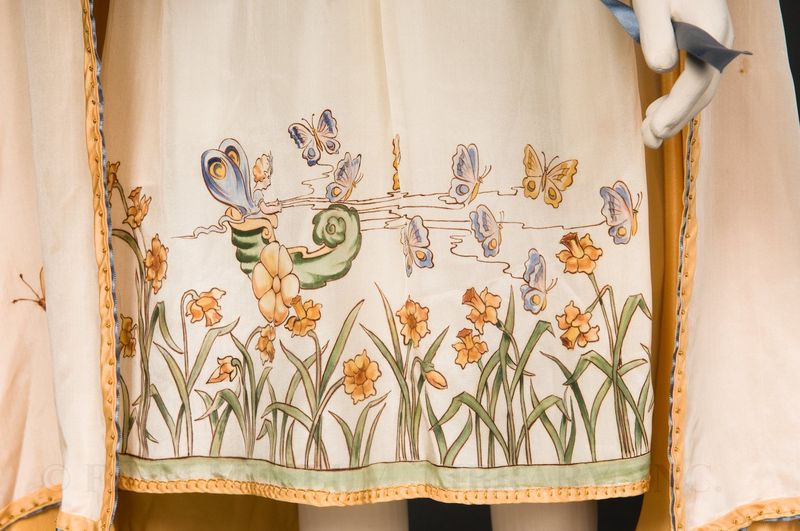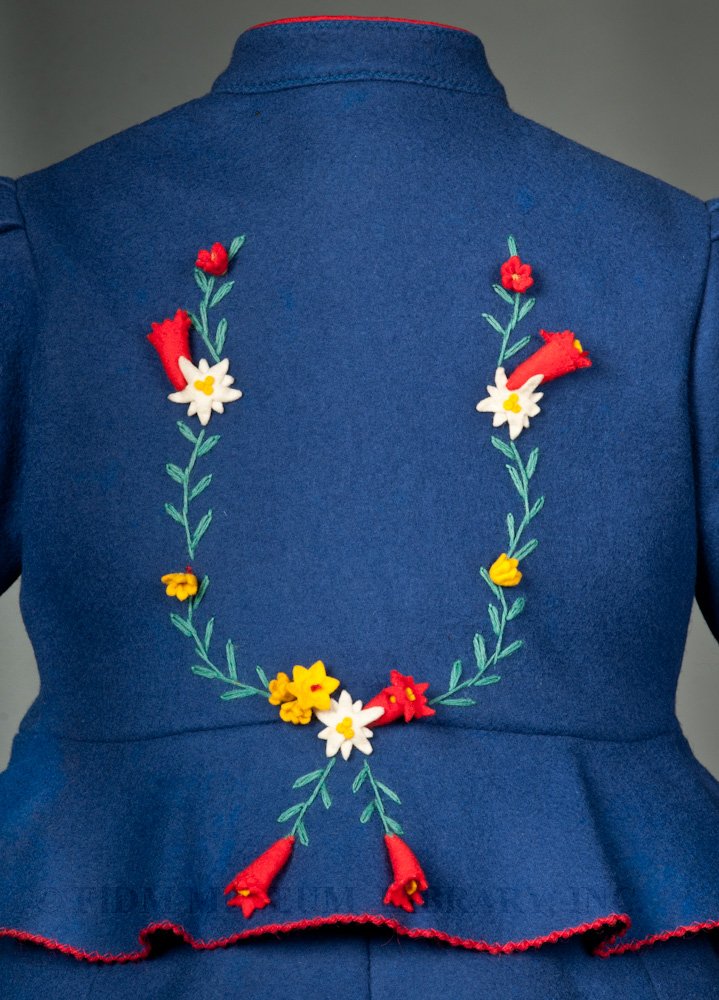Flower Girls
Spring is in the air! Flowers have long symbolized the simplicity and transience of youth, making them perfect ornaments for these three girl's ensembles in the FIDM Museum's collection.
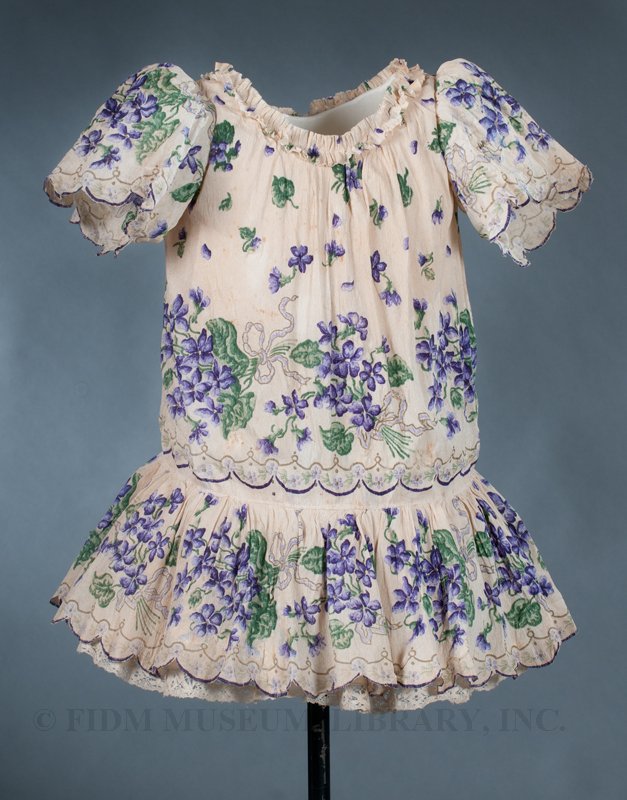
United States
c 1897
2007.897.3
Gift of Steven Porterfield
This violet-strewn frock may look like silk georgette, but it is actually made of crepe paper, first developed in the 1890s. The novelty material was used primarily for painted fans and parasols; however, it could also be sewn like a woven textile. Here, it is attached to a lace-edged cotton underdress. While not sturdy enough for extended wear, crepe paper was an inexpensive solution for a masquerade costume--or a quickly-outgrown child's garment.
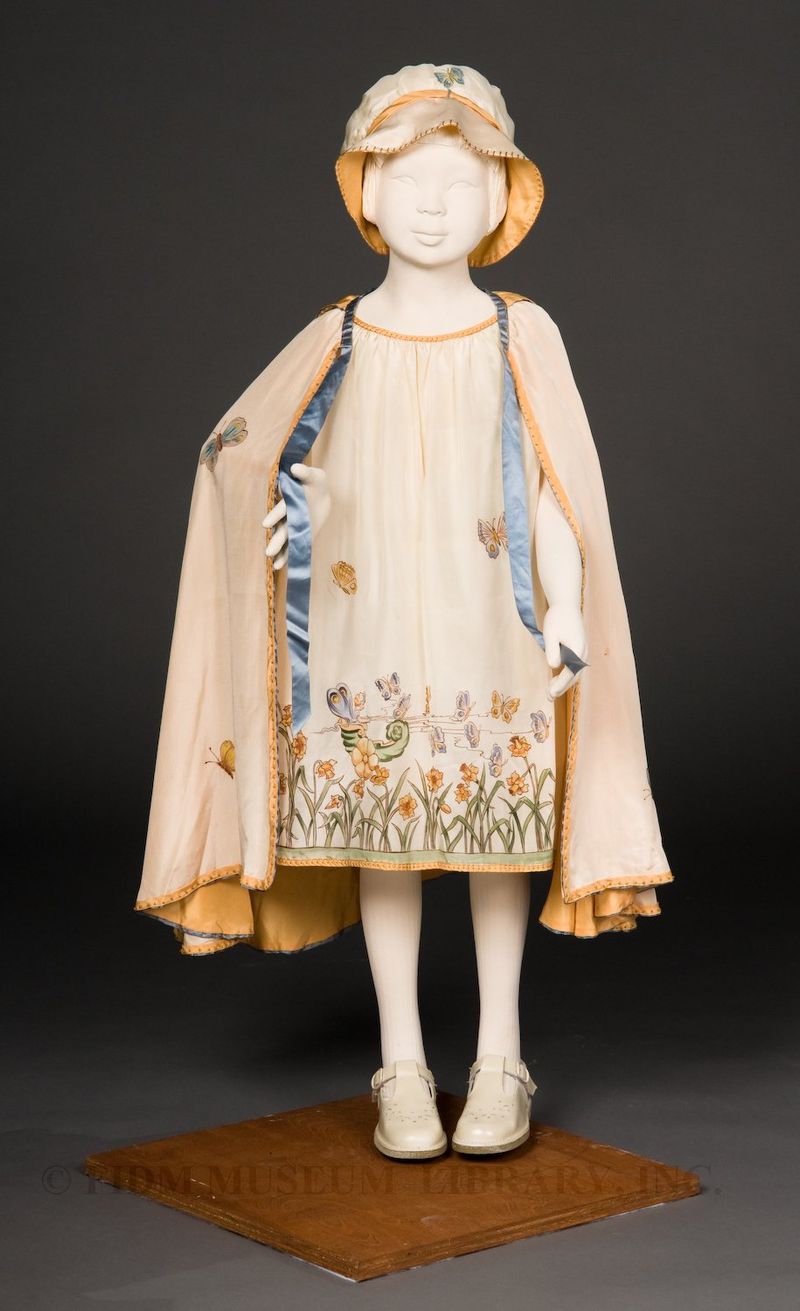 Daisy Stanford for Dainty Blossom
Daisy Stanford for Dainty Blossom
c. 1924-25
2003.5.24a-c
Museum Purchase
The Hans Christian Andersen tale Thumbelina inspired this hand-painted silk dress and matching cloak and cap.
The butterflies who pull the tiny girl through a daffodil forest to marry her Flower-Fairy Prince are another reminder of the transience of youth; the young girl will eventually metamorphose into a beautiful woman.
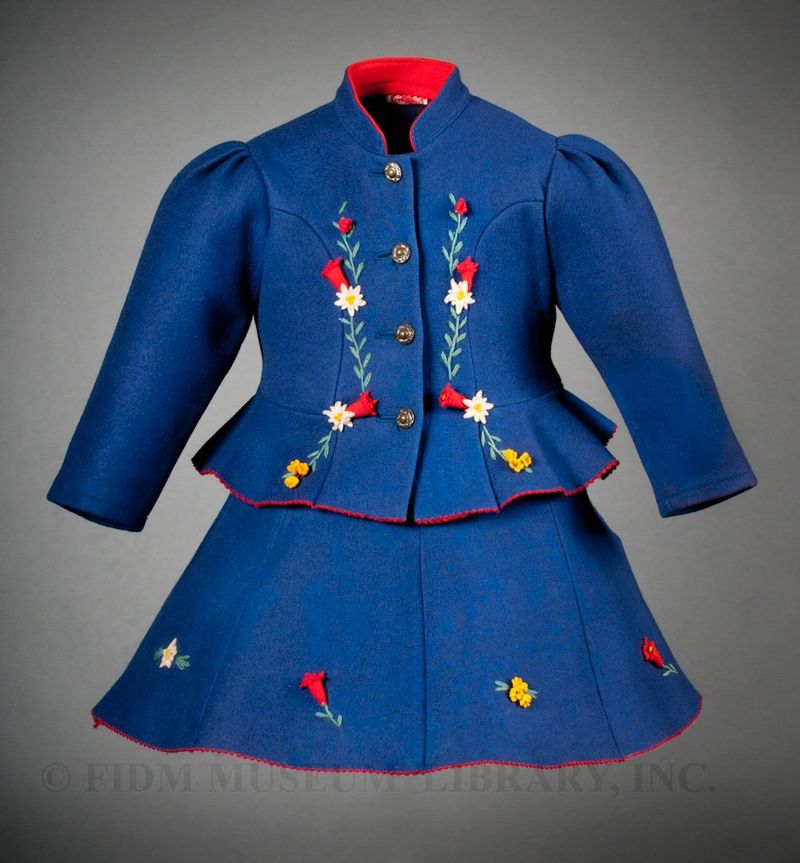 Wiener Werkstatte
Wiener Werkstatte
c. 1930
2005.5.170a-b
Museum Purchase
Three-dimensional felt flowers decorate this jacket and skirt ensemble created by the Wiener Werkstatte (Vienna Workshop). Founded in 1903, the Wiener Werkstatte was a design and manufacturing studio dedicated to creating Gesamtkunstwerk, a total work of art that united architecture, furniture, graphic design, clothing, and the other material elements of daily life into a compatible whole.
Fashion and textiles were an important part of the endeavor; a dedicated fashion division was established in 1911. This ensemble dates from the last years of the Wiener Werkstatte, when the workshop had transitioned away from contemporary art movements and towards traditional, regional folk styles. The white edelweiss flower had been a symbol of Austria since the 19th century. Hardy, pure, and short-lived, it is hard to imagine a more fitting emblem of childhood.
